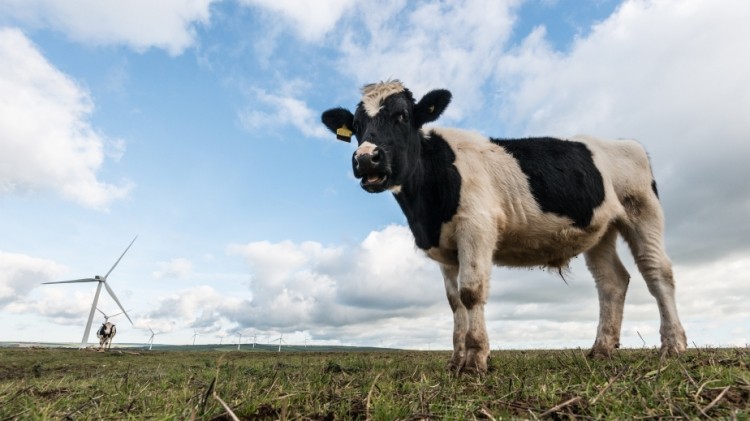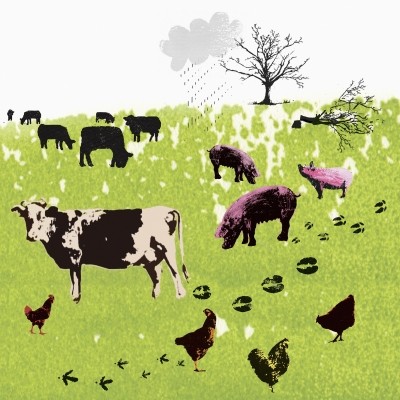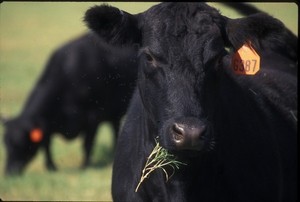Does beer ingredient + cattle feed = answer to global warming?

Hops are used to impart bitterness and aromatic flavors to beer; however certain compounds also possess antimicrobial properties.
In the hunt for natural preventions to tackle bovine tuberculosis, a massive problem in Wales and south west England, Dr James Blaxland, postdoctoral research associate, the Cardiff School of Pharmacy and Pharmaceutical Sciences, has tested more than 50 different hop compounds from around the world against bacterium samples.
“I found one hop extract that worked in terms of bovine TB. A colleague from the School of Earth Sciences then suggested we could also try and test that compound against the bacteria that produces methane in cows, methane emissions from cattle being one of the biggest contributing factors to greenhouse gases globally.
“We grew the bacteria, methanobrevibacter, under laboratory conditions and then exposed it to the hop extract, comparing it to a control. The results showed the compound prevented the bacteria from producing methane,” he told us.
Blaxland said a specially formulated hops-based feed could be an effective strategy in terms of methane reduction in cattle. More funding is needed, though, to develop his findings.
Canadian findings
Another hops focused study by a North America team found dietary supplementation of whole hops could be an efficient manipulation strategy to reduce methane production and increase energy efficiency for ruminant production.
Scientists based at Canada’s Lethbridge Research Centre, which aims at improving the long-term competitiveness of the Canadian agri-food sector, carried out research in 2011 and saw some promising results in relation to hops and methane reduction.
The study, published in the journal Livestock Science, showed hops quadratically decreased methane production as per unit of digested dry matter irrespective of the type of substrate incubated.
“Effects of whole hops on ruminal fermentation were diet and dose dependent. Inclusion of hops in ruminants may offer a means of decreasing ruminal methane emissions without compromising fermentability of feed,” found the researchers.
The researchers said the mode of action by which whole hops decreased ruminal methane production is not known.
“Identifying the effective compounds in hops and characterizing the reactions of these compounds with different rumen microbes would be crucial to elucidate the mechanism by which hops decrease ruminal methane production,” added the Canadian team.
Source: Livestock Science
Published: June 2011
Title: Effects of hops on in vitro ruminal fermentation of diets varying in forage content
Authors: N Narvaez, Y. Wang, Z. Xu, T. McAllister







